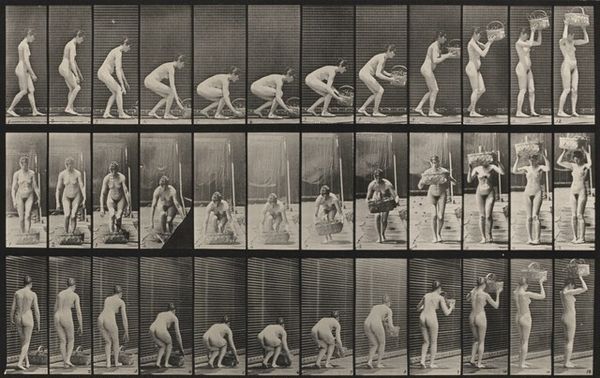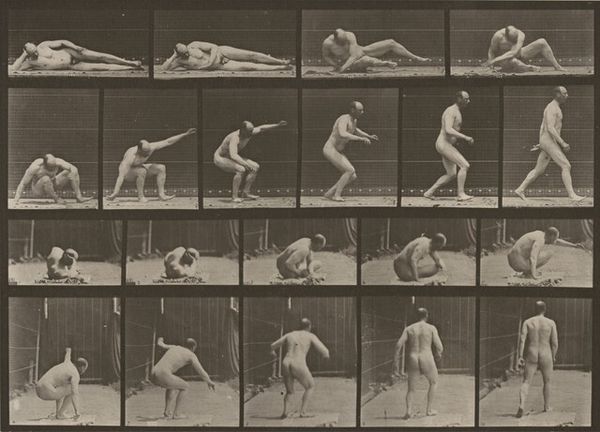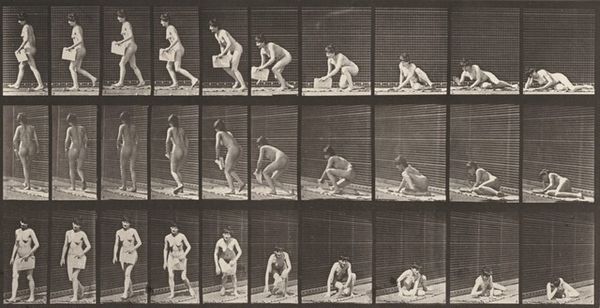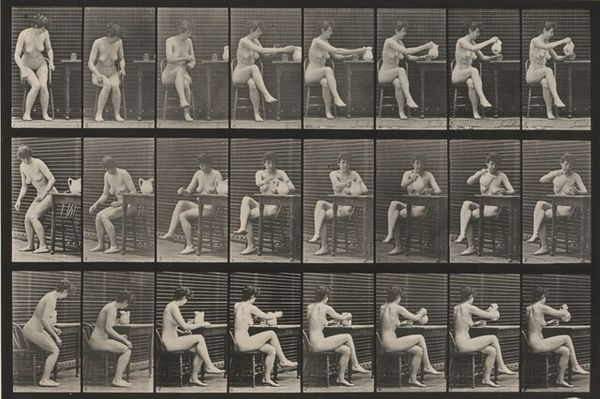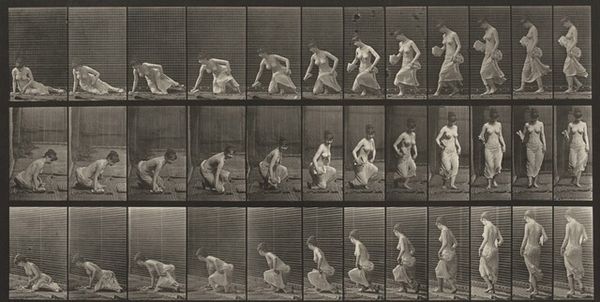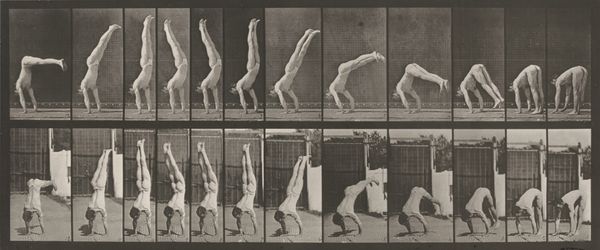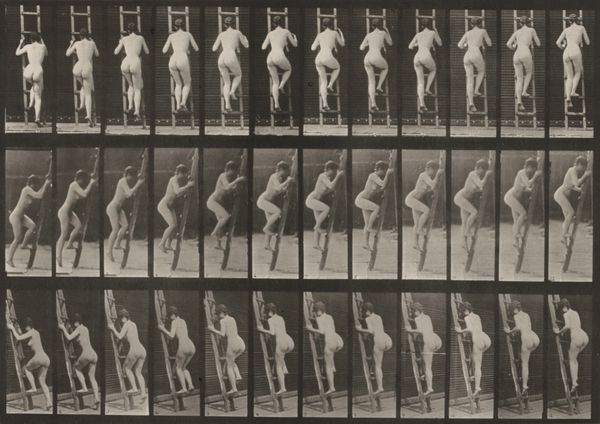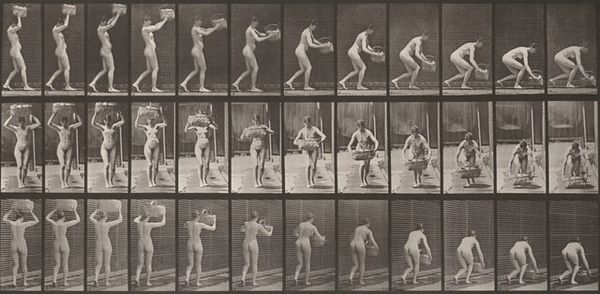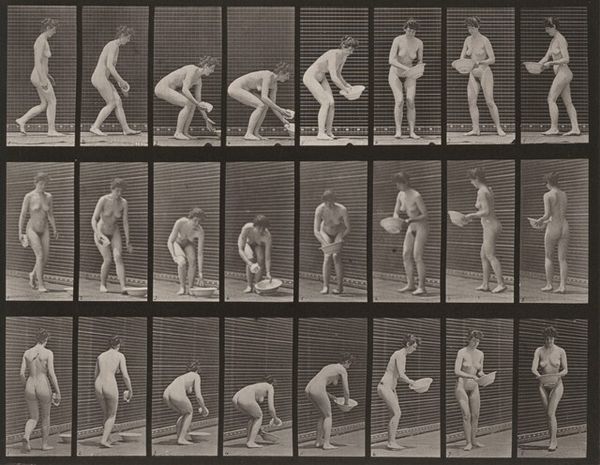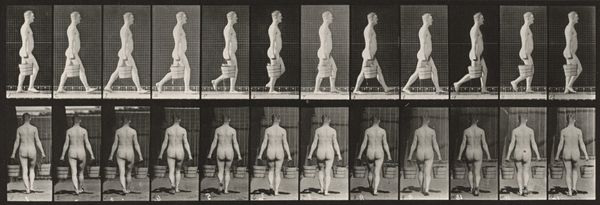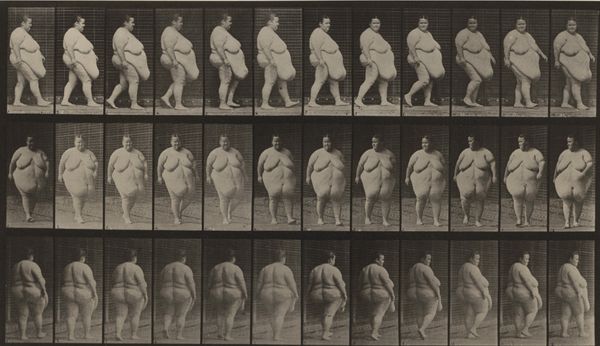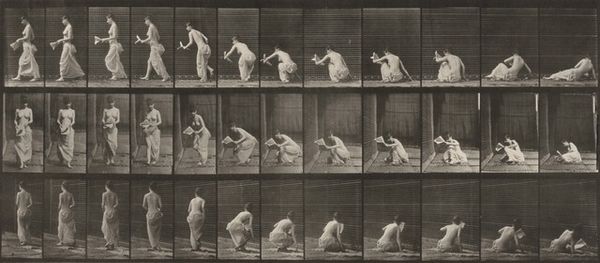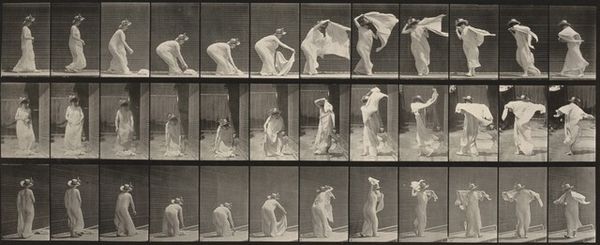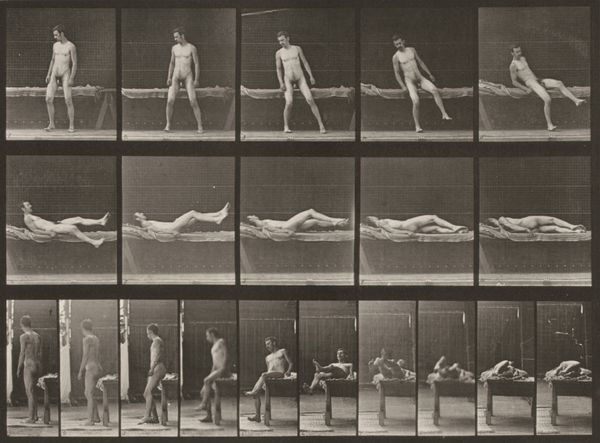
print, photography, gelatin-silver-print
#
film photography
#
black and white photography
# print
#
figuration
#
photography
#
gelatin-silver-print
#
monochrome photography
#
nude
Dimensions: image: 18.4 × 38.1 cm (7 1/4 × 15 in.) sheet: 48.4 × 61.2 cm (19 1/16 × 24 1/8 in.)
Copyright: National Gallery of Art: CC0 1.0
Eadweard Muybridge made this composite photograph of a woman getting into bed in the late 19th century using a groundbreaking method of serial photography. It was not traditional artistic materials he was engaging with but photographic technology in its infancy, developed for scientific study rather than artistic expression. Each frame captures a discrete moment, and when viewed together, they reveal the mechanics of human movement. Note how the material of photography renders the nuances of texture, light, and shadow, capturing the drape of fabric and the contours of the human body. Muybridge's work has social significance as part of the larger Industrial Revolution era. The rise of scientific management and Taylorism viewed the human body as a system of parts, as the human body was being integrated into factory production lines. Muybridge's images have been used to increase worker efficiency by breaking down and analyzing a person's movements to determine the most effective method to execute each action. By attending to the materials and modes of production, we see how this work can challenge distinctions between art, science, labor, and industry.
Comments
No comments
Be the first to comment and join the conversation on the ultimate creative platform.
